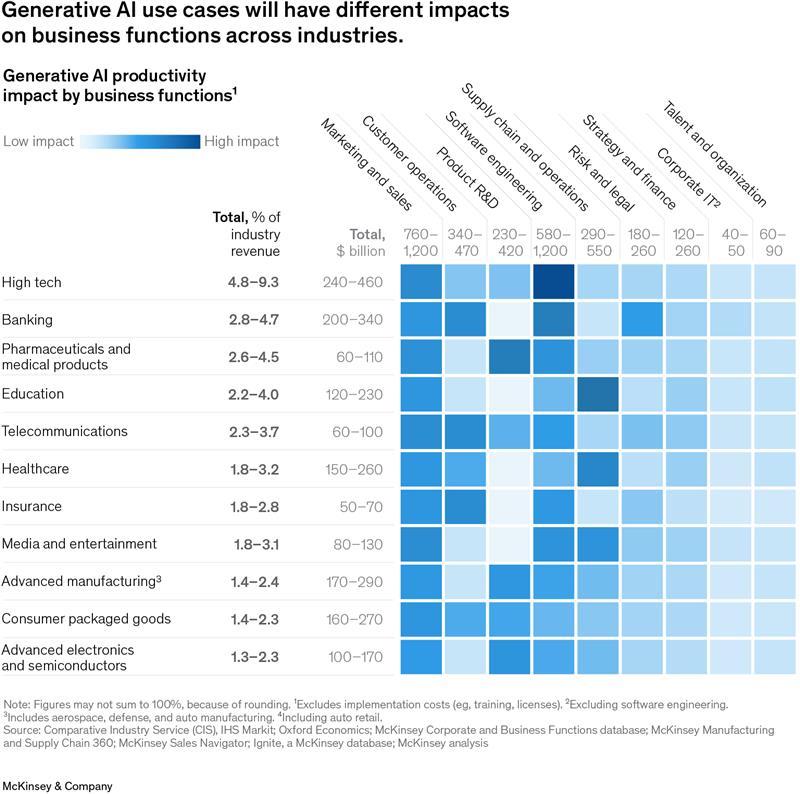Sustainability within the retail industry has come out as one of the top priorities with retailers recognizing their role in the environmental conservation, social justice, and sound corporate governance. The main part of this promise is the Environmental, Social, and Governance (ESG) framework, and this is a holistic
measure that helps assess and improve the stability results of the company. Environmental considerations put emphasis on the control of carbon-footprint tracking, energy consumption, minimizing waste and sustainability in the supply-chain in order to reduce the ecological impact. The social aspect highlights the welfare of its employees, the fair use of labour, diversity among suppliers, community and supports ethical retailing and social accountability. In the meantime, compliance, regulatory compliance, risk management and transparency all are part of governance, but it is about ensuring businesses are running in an ethical manner that will create long term value.
Increasingly, retailers are faced with a growing complexity issue to handle large quantities of ESG information at both an operational and also supplier and customer interface. The Salesforce Sustainability Cloud is a complete data-management service for ESG, integrating and simplifying real-time ESG monitoring and reporting, as well as intelligence-driven sustainability analysis, driven by AI. Through the use of Salesforce ESG tools, retailers have created practical ESG metrics to steer their ESG strategy, enable reporting processes via ESG automation, and develop transparency on ESG.
These solutions have the potential to enable retailers to balance sustainability operations with profitability, stakeholder expectations that are growing, and to adopt ESG best practices in an efficient manner – creating a leadership position on sustainable retail.
The Rising Importance of ESG in Retail
This is because the problem facing most retailers is how to manage voluminous and far-flung information and convert it into implementable strategies, while simultaneously ensuring uniformity in reporting. Not only is Salesforce Sustainability Cloud and its powerful ecosystem able to fill this divide through offering a user-friendly scalable platform to consolidate ESG measurements across a wide array of sources.
Supplier and employee welfare indicators, governance compliance data streams become visible on a single platform and are aggregated by retailers. This unified information would be delivered in terms of readable and customizable dashboards, making it possible to make a decision in a timely and informed manner.With the sustainable environment becoming increasingly multifaceted, the retailers who implement Salesforce technologies are getting a visible competitive advantage by converting sustainability aims with the general business interests, as well as ensuring transparency without negatively affecting profitability.
Key points summarizing this include:
- Data Consolidation: Salesforce helps unify disparate ESG data into a cohesive view.
- Customizable Dashboards: Play a vital role in real-time monitoring and strategic decision-making.
- Alignment of Goals: Ensures sustainability is integrated with business objectives.
- Transparency Assurance: Maintains clear, authentic reporting to stakeholders.
- Profitability Preservation: Achieves sustainability goals without compromising financial performance.
The contemporary retail landscape demands not only outstanding products and services but also authentic, long-term commitments that permeate all aspects of business. Concepts of ESG are deeply connected to consumer buying patterns, investor preferences, and regulatory environments. This is especially true in industries like retail, where complex supply chains and ubiquitous customer touchpoints exist.
Environmental efforts like minimizing carbon footprints and waste support regulatory compliance and enhance brand reputation. Meanwhile, corporate social responsibility initiatives including fair labor practices and community engagement foster customer loyalty and boost workplace satisfaction. Robust governance practices provide ethical operational frameworks and risk mitigation, which are essential for business stability and sustainable value creation in the long term.
Challenges in Managing ESG Goals
Economic payoffs are also realized by investment in ESG initiatives. As ESG-strong retailers usually report superior operational efficiencies, resource optimisation reducing costs, and superior access to capital market, ESG funds and sustainable investing is in a constant upswing. International regulations and sustainability reporting compel the pressure to bring about sustainability performance at a whole. As a result, using ESG as part of essential retail business is now not a choice but a necessity that retailers that want to succeed in the economic environment in the future. The built-in ESG tools at Salesforce help the retailers to manage these challenges in an all-encompassing and transparent manner.
In spite of the obvious significance of the ESG, retailers face great challenges that make it difficult to set goals and measure performance. Most of them have varying legacy systems that disaggregate critical data that is needed to analyze sustainability, including supplier emissions and diversity data pertaining to workforce. This discontinuity hinders the provision of ESG performance as a single picture, which leads to its inefficiency and the possible reporting errors. Moreover, global sustainability standards and regulations are very complex, which means having to meet various requirements and at the same time maintain data integrity and compliance, which can be considered to add cost and operational expenses.
In addition to technological barriers, it is still difficult to harmonize the ESG targets and the business and financial processes. The retailers have to reconcile sustainability investments and profitability requirements and with finite resources or understanding of sustainability management.What is making this even more difficult is that stakeholder engagement is necessary such as customer transparency and employee involvement is required, requiring uniform communication and cultural changes in organisations. These issues can be addressed using Salesforce ESG platform, which is based on the integrated data management, automation, AI-based insights and collaborative tools to facilitate cross-functional work and continuous improvement.
Salesforce as a Comprehensive ESG Solution
The ESG initiatives at Salesforce such as the Salesforce Sustainability Cloud give retailers a strong platform through which they can manage their sustainability programs across the board. Salesforce can help retailers to convert raw data into useful information by capturing ESG data on the various touchpoints, considering that the data could be operational data, supply-chain analytics, or social responsibility programmes. Detailed dashboards and reporting solutions enable departmental and management-tier stakeholders to visualize improvement in relation to predetermined targets of carbon-reduction or workforce heterogeneity. Such disclosure plays a vital role in the internal decision making as well as enhancing the trust of the external stakeholders.
Besides, Salesforce cloud-based and scalable design can support both large and small retailers both in terms of size and complexity and offer real-time update capabilities and an easily integrating feature with the current ERP and CRM systems. Its automation capabilities save manual work with automated data collection and processings and limit errors and enable teams to work on implementing strategies. The Salesforce ecosystem also promotes innovation through accommodation of third-party application integration based on specialised ESG needs, which include the offering of retailers a sustainable management system that is flexible and adaptable to customer needs.
Real Time Monitoring and Analysis
The real-time monitoring features of Salesforce will be useful to retailers in providing insights on the major ESG indicators on global operations on an up-to-the-minute basis. Customizable dashboard helps to view specific metrics, including energy usage in each store location, supplier compliance rate, or health and safety rates of the particular employees. These tools allow preventive management, as the anomalies or threat can be detected before it becomes critical and allow the development of an improvement culture. Strong data visualisation and drill-down business capabilities enable the executives to make knowledgeable strategic decisions on the basis of the newest analytics without missing out on the adherence to the sustainability promises.
The ESG management is also advanced by using artificial intelligence and machine learning to provide advanced analytics. Predictive models evaluate the risks associated with the environmental impacts or supply-chain disruptions, and thus retailers can strategise on mitigating them, or respond proactively to sourcing. Salesforce Einstein AI intelligences compare and identify trends between and across company business functions and provide practical recommendations to enhance efficiency and fulfill ESG goals. Both the unity of real-time visibility and AI-driven insights provide retailers with a toolkit that can help them gather momentum in the sustainability process.
Securing Openness and Accountability.
The automated Salesforce data collection, validation, and reporting processes make it easy to meet various and even demanding sustainability reporting criteria. Retailers are able to create reports that are within the globally accepted standards, like GRI, SASB and TCFD and they offer reliable disclosures to investors, regulators and customers. Salesforce is also audit ready because the data lineage and documentation trail is robust and can support claims and minimize the possibility of mistakes or omissions. Such open reporting features play a critical role in the age of ESG investing, but credibility and accountability would impact the access to capital and market position directly.
In addition to conventional reporting, Salesforce enables continuous stakeholder interaction with the help of portals and experience management solutions.
Individualized communications on sustsuppliers and the community members can be given, thereby encouraging collaborative relations. Retailers are able to document their activities, make ongoing progress, and receive feedback, which helps them to produce a trendy ESG story that strengthens their determination to corporate accountability and foster better relationships with communities.
Capitalizing on AI and Automation.
The use of AI by Salesforce is critical towards assisting the retailers in optimising ESG performance. Using machine-learning algorithms on massive ESG data, Salesforce Einstein detects areas of inefficiency, worsens that might happen later, and proposes methods to enhance the situation. Automation workflows do not require manual tracking and reporting activities, limiting human error and increasing the speed at which retailers are able to react to environmental or social demands. Such smart tools will help retailers redirect their efforts on compliance-based efforts to active sustainability innovation.
Automation can maintain the sustainability of the operations as well, by improving the supply-chain management, as well as the use of resources. As an illustration, the prediction method on inventory replenishment can be deployed to decrease waste, whereas AI models can be used to select suppliers with better ESG scores, which guide decisions on partnerships. The combination of automation and AI and ESG goals help retailers achieve not only better sustainability results, but also better operation efficiencies to increases profitability.
Social Impact and Governance.
Salesforce does not only liquidate the ESG management to the environmental issues, it addresses social responsibility and governance practices which play a critical role in the modern retail. The platform observes metrics on supplier diversity, and it assists the retailers in contributing to equitable economic growth and meeting the rising diversity standards. Labour condition and community contribution tracking tools also make sure that ethical business practices are entrenched in execution. The Salesforce CRM features enable retailers to treat customers in a responsible way and facilitate openness and trust.
At the governance level, Salesforce aids in compliance management, automating regulatory tracking, risk assessment and enforcing policies. The tools assist the retailers in being ethically responsible and reduce reputational and operational risks. Effective governance structures that are established at Salesforce support decision-making, accountability, and transparency, which form the basis of sustainable business practices and performance that fulfill the expectations of the stakeholders.
Benefits for Retailers
Retailers that adopt Salesforce sustainability solutions report significant benefits across multiple dimensions. Environmental gains include reductions in carbon emissions and waste, often resulting in energy and material savings. Enhanced social responsibility initiatives boost employee engagement, customer retention, and community involvement, which are vital for brand differentiation. Strong governance and compliance minimize fines and litigation risks while preserving reputation and shareholder value.
It is also beneficial to the financial performances since ESG performance becomes more and more a component of the investment decisions and market values. The existence of mature ESG programmes enables retailers to attract ESG-oriented capital which presents new sources of finance. The combined effect of improving operational efficiencies and improving ties with the stakeholders enables retailers to establish resiliency in their businesses and make them future-proof. The Salesforce will help the retailer to achieve these objectives by designing them in a holistic manner that ensures sustainability is the key to long-term success.
Best Practice in ESG Tool Maximisation of Salesforce.
The first step in achieving the maximum benefit of Salesforce ESG solutions is to have coherent, measurable sustainability goals in line with corporate strategy by retailers. The cross-functional working process should be involved to capture all the information and take uniform steps towards ESG activities. Periodic training and internal netting encourage sustainable thoughts across the organisation, to motivate involvement and responsibility.
To align with upcoming best practices, Retailers need to utilise the partner ecosystem of Salesforce to tailor solutions and adopt new best practices. Constant follow-ups and upgrades by way of repetition will make sure that ESG initiatives are continuously adjusted along with varying rules and market demands. A combination of ESG data and core business KPIs will help to turn sustainability as an independent part of business to an innovation generator and capacity enhancer.
Conclusion
Salesforce is a strong, single point that enables retailers to unleash ESG challenges into growth and innovation opportunities, as well as transparency. Salesforce can also aid retailers move their sustainability agendas forward in an effective and authentic manner by allowing consolidated data management, real time analytics, automated compliance and optimisation by AI. Those retailers that adopt this technology are in a good position to address the increasing stakeholder demands, lower the environmental effects, and promote social equity and resilient businesses suitable to the requirements of a green economy in the world.




